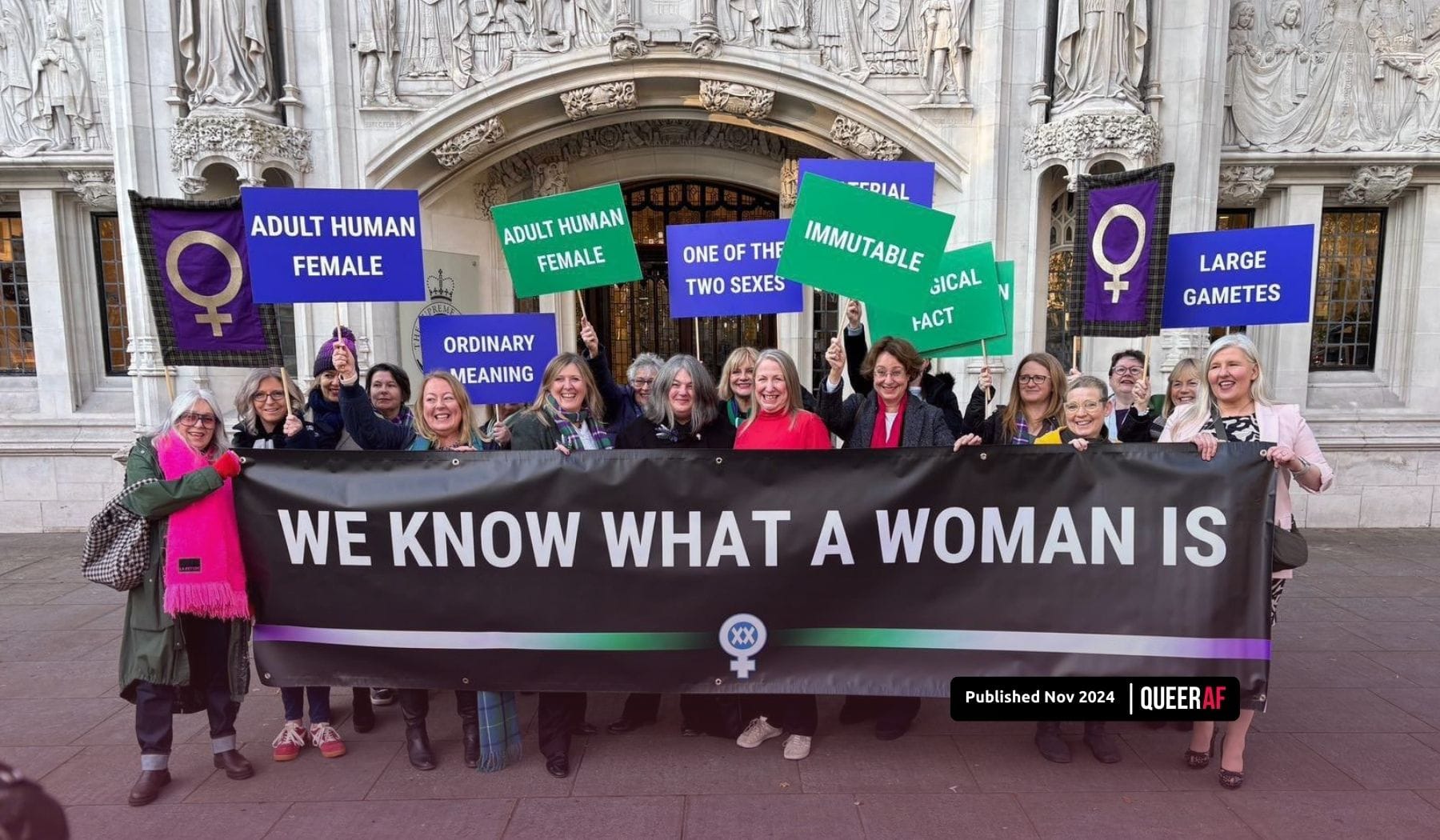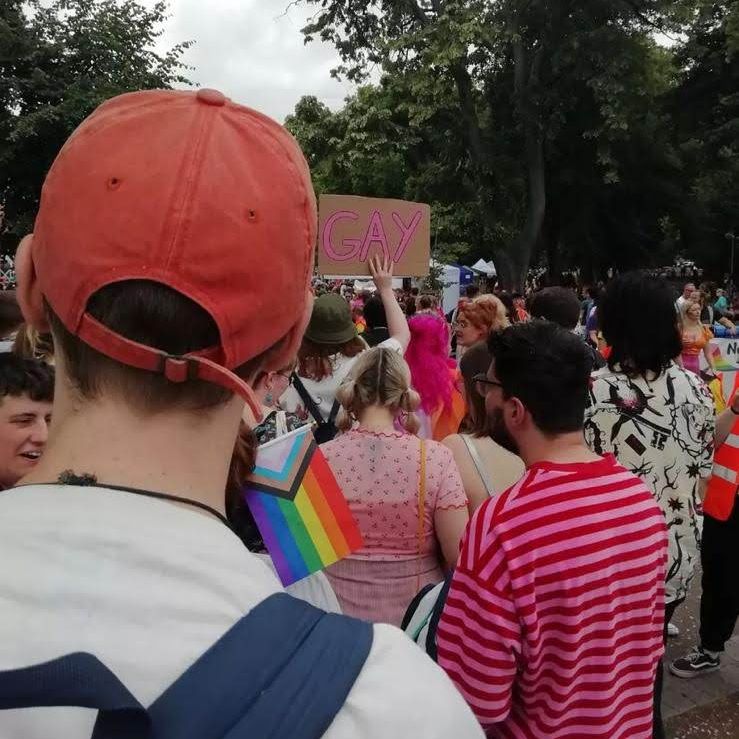TL;DR: The UK Supreme Court has heard defenses of and challenges against a Scottish court’s ruling that trans women with a Gender Recognition Certificate are women for all legal purposes. The case is the latest attempt by so-called ‘gender critical’ groups to shape the law to reflect their oppressive philosophy.
The UK Supreme Court received submissions this week from representatives of the Scottish Government, so-called ‘gender critical’ group For Women Scotland and others as a hearing about the legal definition of ‘woman’ got underway - Guardian
The hearing is a result of a challenge made by For Women Scotland against a 2022 ruling by a Scottish court that “‘sex' is not limited to biological or birth sex” for the purposes of the Equality Act 2010.
In short, the court ruled that trans women are women - and For Women Scotland apparently didn’t like that. The group lost an initial appeal to the Scottish courts but were allowed to bring their challenge to the Supreme Court for a final ruling - BBC
Representing the Scottish government, Ruth Crawford KC argued to the court on Wednesday that the Gender Recognition Act 2004 does not conflict with the Equality Act, as For Women Scotland suggested, but rather makes clear that trans women with a Gender Recognition Certificate (GRC) are women “for all purposes”.
Supreme Court judges will now develop a ruling, which could take up to several weeks.
Who is involved in the case?
So-called ‘gender critical’ activists have been working towards this hearing for a while. Back in February, JK Rowling donated £70k to For Women Scotland in support of their case - The Times
Another ‘gender critical’ group, Sex Matters, has reported that it has also been given permission to make representations to the Supreme Court. The organisation faced controversy earlier this year when its director Helen Joyce was spotted reading erotic Harry Potter fan fiction on a train - QueerAF
Human rights organisations have also presented submissions to the hearing, arguing that the Scottish government’s ruling must be upheld to protect the rights of trans people. Publishing its submission, Amnesty International discussed the underlying motivations of the appeal:
“In many countries, groups that want to limit the autonomy of women and LGBT+ people are bringing legal challenges to erode human rights protections [...] This is one of those cases.” - Amnesty International
What impact could the case have?
While the Supreme Court’s ruling on this hearing will not itself be legally binding, if it rules in favour of For Women Scotland it could have far-reaching effects on how public bodies treat trans women.
It could also provide a motivation for the government to consider changes in the law. At the hearing, a legal representative for the widely-discredited government body the Equality and Human Rights Commission (EHRC) said the case highlighted the need for parliament to consider amending the Equality Act.
Analysis: Their definitions don’t define us
By fighting over definitions, For Women Scotland, Sex Matters and their allies are trying to force women - trans or cis - to fit into smaller and smaller boxes.
By confining gender to the ‘technically correct’ fine print of the law, they are trying to drain the world of the joys of diverse gender expression.
It’s an oppressive philosophy, helping to create a social and legal environment that restricts all women. Just as we’ve seen with bathroom bans, trying to regulate people’s behaviour on the basis of vague notions of ‘biological sex’ just leads to restricting everyone’s freedom.
By contrast, trans-inclusive policies like self-ID and gender-neutral facilities promote a philosophy of liberation.
When we stand up for trans women, we are saying that everyone should be free to be who they are - even if that doesn’t line up with traditionally recognised identities, and even if it changes over time.
A court ruling doesn’t change who we are, or who we can be. Whatever the outcome of this case, we must keep standing up for that ideal.

Here at QueerAF, we don’t get special access to the courts, or politicians, or parliamentary committees. We don’t get national papers rushing to report all of our claims and arguments. We don’t get millionaire authors dropping five-figure sums on us on a whim.
Unfortunately, many so-called ‘gender critical’ groups do.
That kind of privileged access is what has allowed a tiny minority of ideological lobbyists to affect policy and media narratives so much over the past few years. It’s an influence gap that can be intimidating.
But we’re fighting to make queer voices heard. Every. Single. Week. With your help, we can overcome their advantage and change the narrative.
Our November membership drive has been super successful. We crushed our original goal and our first stretch goal - with just a few more new members we’ll have gone beyond what any of us expected we could achieve this month.
This weekend is your last chance to lock in our membership drive discounts and help support effective, representative and joyful queer journalism - on the cheap!
The more perks you choose, the better the discount you can grab:
- 10% off 'Supporter': Monthly / Annual
- 15% off '100% QueerAF': Monthly / Annual
- 20% off 'Editor': Monthly / Annual
A few anti-trans lobbyists don’t scare us - this month we’ve seen more than ever how much the support of dedicated, caring communities can do. We’ll stick at it, if you stick with us.











